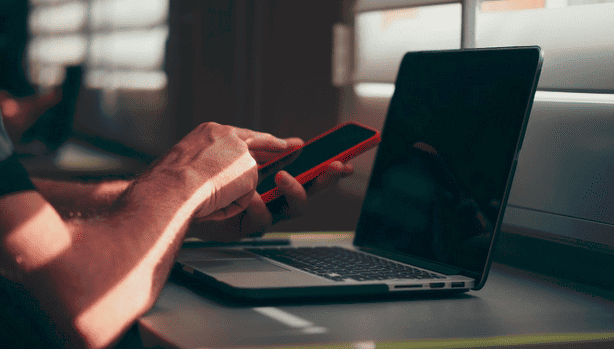Your iPhone is one of the safest devices in the world. Compared to Android-powered phones, iPhones are generally considered more secure due to Apple’s focus on encryption. An average iPhone user enjoys far more privacy than the average Android smartphone user.
But don’t get too comfortable; the iPhone’s enhanced security doesn’t mean your device is hacker-proof. Hackers can still gain access and compromise iOS security if you don’t implement good digital hygiene and follow the best safety practices.
iOS is always championed for its user privacy and security, and Apple’s security policies reflect that. However, to augment these efforts, you need to implement a few iOS security tips to stay safe on your iPhone.
Let’s take a look!
Top Security Tips to Stay Safe on iPhone

Apple’s efforts to make iOS more secure are continuously improving mobile app security and ensuring that iOS users feel safe when using their devices for everyday activities.
The company has also enforced strict rules to determine which software can and cannot run on its devices. This is all aimed at keeping users safe from malicious software. However, this isn’t all you need to keep your iPhone safe from security threats.
For example, you need to know what to dial to see if your phone is hacked. Additionally, it would help if you were well-equipped with crucial tips to make your iPhone a digital fortress. Let’s explore some of them below.
1. Keep your iOS up-to-date
Maintaining the latest iOS version is foundational to your iPhone’s security. Apple continually releases updates to patch vulnerabilities and enhance security protocols. Most of these vulnerabilities are what hackers use to attack your device.
Your older IOS is potentially in greater danger after security has been released. So, by ensuring your device is up-to-date, you benefit from the latest defenses against emerging threats. Here are steps to check for updates on your iPhone;
- Navigate to Settings
- Click General
- Go to Software Update.
Consider enabling automatic updates for added convenience and security. Delaying the latest iOS updates may put your iPhone at a greater risk of personal information being hacked.
2. Enable Face ID or Touch ID
Apple provides Face ID or Touch ID for its supported iPhone models as a means to securely and conveniently unlock your iPhone. These are robust biometric authentication methods that ensure no unauthorized person accesses your device.
You’ll use either your finger to Set up Touch ID on your iPhone or your face for setting up Face ID. This way, intruders will find it significantly harder to breach your iPhone’s security and steal sensitive data.
The best part is that you can also rely on these biometric authentications to authorize purchases and even sign in to third-party apps.
3. Use a strong passcode
Setting a strong passcode is one of the most important security measures you can take to safeguard your device. This doesn’t apply to your iPhone alone; you need it across all your Apple devices.
Passcodes are crucial, especially when your device doesn’t support biometric authentication as an extra security layer.
For most iPhone users, a four-digit or six-digit PIN provides an easy way to secure their phones. However, these passcodes need to be robust enough and not easily guessable codes such as “0000.”
Instead, go for alphanumeric codes that combine letters, numbers, and special characters to bolster your device’s defense against unauthorized access. Here are easy steps to change a passcode on your iPhone
- Go to Settings
- Tap Face ID & Passcode
- Or, Tap Touch ID & Passcode
- Click on Turn Passcode on or Change Passcode.
Tap Passcode Options to view options for creating a more robust password for your iPhone model.
4. Activate Two-Factor Authentication (2FA)
Activating Two-Factor Authentication (2FA) prevents unauthorized access to your iPhone, even if the password is compromised.
When activated, those trying to access your device will need both the Apple ID password and a physical security key to sign into the account. Setting up 2FA has numerous benefits, and here is how to activate it on your iPhone.
- Go to Settings
- Select Your Name
- Click on Password & Security
- Tap Two-Factor Authentication.
5. Regularly check for viruses and suspicious activity
iOS’s security measures are generally difficult to bypass. But, hackers seeking to steal sensitive data can still compromise your iPhone.
Fortunately, you can implement proactive monitoring of your device as one way to maintain security. For example, a quick malware check should reveal any issues or suspicious activities on your device.
Besides, you should also know how to check iPhone for virus in settings and take advantage of Apple’s tools. Remember that the possibility of catching a virus on your device is still slim.
But even with that slender chance, it helps if you know how to check and protect your device from viruses in case standard protection measures fail.
6. Use a VPN
A VPN (Virtual Private Network) is a tool you must have to ensure an extra security layer to your device. It’s vital if you regularly use your iPhone on different wireless networks. A VPN ensures your online safety by encrypting your traffic, making it difficult for hackers to intercept anything.
Remember that anyone else on the same public network as you can see the unencrypted network transmissions you make. As such, hackers can orchestrate phishing attacks to get hold of your essential details like bank accounts and passwords for other Apps on your device.
Using a good VPN means that hackers can’t virtually do anything since all your network traffic is channeled through an encrypted connection to a server far away. It’s an essential additional layer of encryption that significantly shields your internet activities.
7. Download apps from the App Store only
The App Store is well-known for its strict app screening process, ensuring that the apps it offers are safe and reliable. Your iOS security is at a huge risk if you disregard apps from the Apps Store and instead opt to download them from unknown sources.
Most apps from these third-party sources don’t undergo the same scrutiny as those on the Apple Store. This makes them a major security risk on your device and potentially an avenue through which hackers install harmful software.
8. Manage your browsing privacy
Protecting your online privacy is crucial to ensuring your device security. Safari, the default browser on your iPhone, offers features to shield you from malicious websites and unwanted trackers. It prevents trackers from trailing your online activities across different websites.
The browser provides Intelligent Tracking Prevention that allows you to check the Privacy Report and a summary of trackers blocked on the current webpage you’re visiting. You can also fine-tune Safari settings to ensure your browsing remains private.
Final Thoughts
Securing your iPhone is a combined effort of Apple’s robust security features and proactive measures. Follow the above-shared tips to reduce the risk of data breaches, unauthorized access, and privacy infringements on your iPhone.
Stay vigilant, update your iOS, and actively manage your device’s settings to enjoy a safe and secure digital experience with your iPhone. Your data’s protection is a top priority, and taking these precautions is well worth it.

